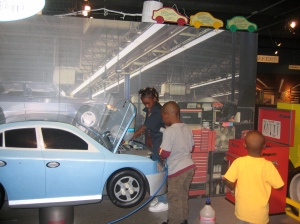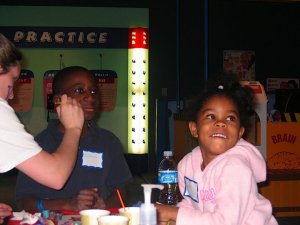The organization I have come to know over the past few months and really appreciate is Kids Matter.(www.kidsmatterinc.org) This organization was founded 9 years ago with the mission of helping the so many children placed into foster care. Helping them by finding them permanent, safe, and happy homes. In the beginning of this project I was overwhelmed with the idea of foster care almost as much with how much Kids Matter truly does. Some of their services include:Fostering Healing, a program dedicated to children who are under child protection order or who live with relatives. Fostering Hope, a service in which they provide children a “fostering hope package” that includes toys, books, even personal hygiene items. Kids Matter CASA, an organization of volunteers who are the advocates for abused and neglected children in Milwaukee.
These are just a few things that the organization does, and to hear the inspiring stories of both Sharon and Aaron as volunteers for Kids Matter, was truly amazing. There are huge problems with the foster care system…as the Kids Matter website says, youth in foster and kinship care…
- have the worst health status of any population of children in America;
- drop out of high school at twice the national rate;
- are 12 times more likely to end up homeless than other young adults.
To see that there are individuals who are VOLUNTEERING their time and effort to help give these children better lives is nothing less then inspiring.
Recently I had the pleasure of joining Kids Matter for an event titled: Fostering Hope. It was on May 1st at the Betty Brinn Children’s Museum in Milwaukee. It was a “free evening of fun for foster & kinship families” and it was truly a blast. There were so many families there – it was packed. So many children were having so much fun with face painting, doing crafts, story time and even getting a free book.
To be honest I had this preconcieved attitude that the kids would be sad, and the families would look like they were enduring the hardships of being foster familes however, I was wrong. These kids were having a blast and it was really nice to see so many families. Below are some pictures that Professor Vicki Callahan took at the event:

















